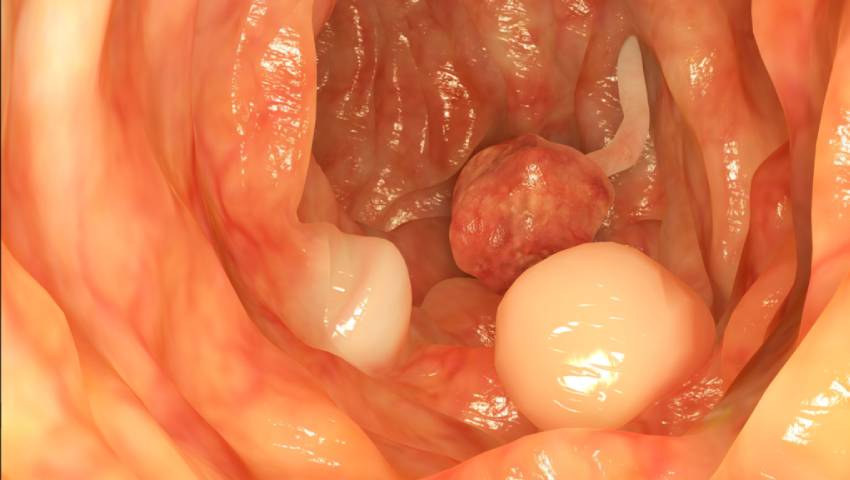
- 02/04/2024
- Dr. Kunaal Shinde
- 0 Comments
- Blog
Uterine Polyps: Causes, Symptoms & Treatment
Despite frequently being benign, uterine endometrial polyps can have a serious influence on a woman’s general health and her ability to conceive. These minute tissue developments in the uterine coating can cause a large number of side effects and results. Endometrial polyps, though usually non-cancerous changes in the uterine lining, can cause important discomfort and, in some cases, impact a woman’s fertility.
Hence, might we at any point analyze what causes uterine polyps, and the consequences of uterine polyps, as well as their ordinary effect on efficiency, nearby the treatment? Whether you are experiencing its signs or simply seeking to expand your knowledge, Dr. Kunaal Shinde is the Best Uterus Removal Surgeon in Pune and He will cover everything you need to know about uterine polyps.
What are Uterine Polyps?
Uterine polyps are strange developments that structure in the covering of the uterus, or endometrium. They are commonly comprised of endometrial tissue and can differ in size, going from a couple of millimeters to a few centimeters. These growths can be attached to the uterine wall by a stalk or be broad-based. While the exact cause of uterine polyps is unknown, hormonal imbalances, such as an excess of estrogen, are believed to play a role in their development.
What are the Types of Uterine Polyps?
Endometrial polyps can be categorized into two main types based on their location within the uterus:
- Pedunculated Polyps: These polyps are connected to the uterine wall by a slight tail.
- Sessile Polyps: These polyps have a more extensive base and are straightforwardly joined to the uterine coating.
Who is affected by uterine polyps?
Dr. Kunaal Shinde says age is a major predictor of polyps. You are most likely to develop uterine polyps in your 40s and 50s, around while you’re moving toward menopause (perimenopause). Uterine polyps can happen after menopause (postmenopause), but they rarely impact people under 20 years old.
Your possibility of creating uterine polyps likewise increments if you:
- Have overweight (BMI 25 < 30) or obese (BMI > 30).
- Have high blood pressure (hypertension).
- Take tamoxifen, a medication that is utilized to treat breast cancer.
- Get a chemical substitution treatment that includes a high measurement of estrogen.
You are at greater risk of getting uterine polyps if you have Lynch syndrome or Cowden syndrome.
What are the Causes of Uterine Polyps?
There is no concrete cause of uterine polyps. However, several elements contribute to their growth, including:
- Hormonal Factors: Changes in hormone tiers, especially estrogen, during a woman’s menstrual cycle, can play a part in the formation of endometrial polyps.
- Chronic Inflammation: Progressing inflammation in the endometrial lining may start the growth of polyps.
- Age and Menopausal Status: As women age, especially during perimenopause and postmenopause, the risk of developing endometrial polyps increases.
- Obesity: There is a correlation between obesity and the presence of endometrial polyps.
What are the symptoms of Uterine Polyps?
Dr. Kunaal Shinde explains that uterine polyps can cause a range of symptoms, although some women may not experience any symptoms at all. When symptoms are clear, they could consist of:
- Abnormal uterine bleeding: The most common symptom of uterine polyps is abnormal uterine bleeding. This can manifest as heavy or prolonged menstrual periods, bleeding between periods, or postmenopausal bleeding. If you notice any unusual bleeding patterns, it is essential to consult with Dr Kunaal Shinde. He is an experienced Obstetrician & Gynecologist in Baner, Pune and offers the best gynecological services.
- Irregular menstrual cycles: Uterine polyps can disrupt the normal hormonal regulation of the menstrual cycle, leading to irregular periods.
- Pelvic pain or discomfort: Some women may experience pelvic pain or discomfort, particularly during intercourse.
- Infertility: In some cases, uterine polyps can interfere with fertility by impacting the implantation of a fertilized egg or preventing the embryo from developing properly.
It is important to remember that these signs can be caused by other situations as well, so a proper diagnosis is crucial.
How do Endometrial Polyps affect Female Fertility?
Endometrial polyps or uterine polyps can affect fertility by interfering with the implantation of a fertilized egg into the uterine lining. They can also disrupt the regular functioning of the endometrium, making it difficult for a pregnancy to establish and progress successfully.
How are uterine polyps diagnosed?
Dr. Kunaal Shinde often thinks of Imaging methods and clinical examinations used together to diagnose uterine polyps. Specific methods for uterine polyps diagnosis include:
- Transvaginal Ultrasound: High-frequency sound waves are used in transvaginal ultrasounds to provide finely detailed pictures of the uterus. This imaging process may be used to specify whether there are polyps. If yes, where they are located, and how large they are can be determined in this ultrasound.
- Hysteroscopy: A thin, flexible tube with a camera is inserted during hysteroscopy via the cervix and vagina into the uterus. This enables the physician to see the uterine lining and any polyps that could be present. Additionally, hysteroscopy can be utilized for polyp removal and biopsy.
- Biopsy: A biopsy is the removal of a tiny sample of uterine lining tissue for microscopic examination. This therapy can help in identifying whether the polyp is malignant or benign.
How are uterine polyps treated?
You must discuss details with Dr. Kunaal Shinde to get the best possible treatment. The therapy of endometrial polyps relies on various aspects, including the size and number of polyps, the severity of signs, and a woman’s reproductive programs. Therapy options include:
- Hysteroscopic Polypectomy: This includes the removal of polyps using a hysteroscope, a minimally intrusive strategy.
- Hormonal Medications: Certain hormonal treatments, like hormonal birth control or hormone therapy, may help shrink or prevent the recurrence of polyps.
- Dilation and Curettage (D&C): This surgical procedure involves scraping or suctioning the uterine lining to remove the polyps.
Consulting Gynecologist For Treatment:
Common growths called uterine polyps can cause a variety of symptoms and consequences. Hormonal imbalances, chronic inflammation, genetics, and hormonal changes are known to contribute to their development, even if their exact reasons are not always evident. For handling signs well, avoiding issues, and keeping optimum reproductive health, early diagnosis and proper therapy are important.
Women should be treated by the Best Gynecologist if abnormal uterine bleeding, irregular menstrual cycles, pain in the pelvic area, or fertility problems can be caused by uterine polyps. Dr. Kunaal Shinde gives Uterine Cancer Treatment in Pune and also offers women with uterine polyps proper care and support because of advancements in diagnostic procedures and treatment choices.
To see a fertility specialist who will answer your questions about endometrial polyps, make an appointment at one of Love Your Belly in the Pune location.

.png)